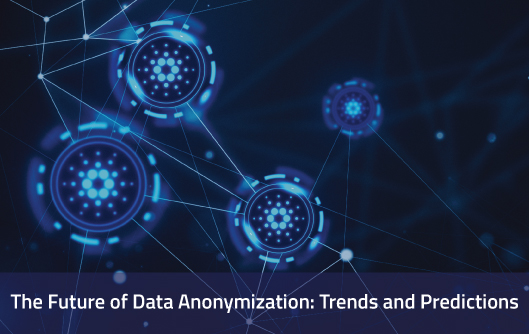Introduction
In the ever-evolving landscape of data privacy and security, data anonymization has emerged as a critical component. As businesses and individuals become more conscious of data protection, the demand for effective data anonymization tools and techniques is on the rise. In this blog, we’ll delve into the future of data anonymization, exploring the trends and predictions that will shape its development in the years to come.
The Growing Significance of Data Anonymization
Data anonymization, often referred to as de-identification, is the process of removing or altering personally identifiable information (PII) from datasets, ensuring that the data remains useful for analysis while protecting the privacy of individuals. The growing significance of data anonymization can be attributed to several factors:
1. Stringent Data Privacy Regulations: The enforcement of data privacy regulations like the General Data Protection Regulation (GDPR) and the California Consumer Privacy Act (CCPA) has forced organizations to take data privacy seriously. Data anonymization helps businesses comply with these regulations by mitigating the risks associated with data breaches and privacy violations.
2. Increasing Data Breaches: Data breaches have become alarmingly common, causing severe financial and reputational damage to organizations. Anonymizing data reduces the attractiveness of databases to cybercriminals, as they are less likely to find valuable PII.
3. Ethical Considerations: There is a growing ethical awareness surrounding data usage. Individuals are more concerned about how their data is handled, making it essential for businesses to prioritize data anonymization to build trust with their customers.
Current Trends in Data Anonymization
Before we dive into predictions, let’s examine the current trends in data anonymization:
1. Machine Learning Integration: Machine learning algorithms are increasingly being integrated into data anonymization tools. These algorithms can automate the identification and anonymization of sensitive information, making the process more efficient and accurate.
2. Differential Privacy: Differential privacy is a mathematical framework that quantifies the privacy risk of an individual in a dataset. This approach is gaining traction as it provides a rigorous way to measure and control privacy while preserving data utility.
3. Secure Multi-Party Computation: This cryptographic technique allows multiple parties to jointly analyze their data without revealing the underlying information. It is a promising trend for privacy-preserving data sharing in collaborative environments.
4. Homomorphic Encryption: Homomorphic encryption enables computations on encrypted data without decrypting it first. This technology is advancing, making it possible to perform complex analyses on sensitive data while keeping it encrypted.
Predictions for the Future
Now, let’s look ahead and explore some predictions for the future of data anonymization:
1. Increased Adoption of AI and Machine Learning
As AI and machine learning continue to advance, they will play a more significant role in data anonymization. These technologies will become integral in automating the anonymization process, identifying sensitive data patterns, and adapting to new threats and vulnerabilities.
2. Integration with Big Data Analytics
Data anonymization will become tightly integrated with big data analytics tools. Organizations will seek solutions that allow them to extract valuable insights from large datasets while preserving privacy. This integration will enable more efficient and powerful data-driven decision-making.
3. Enhanced Privacy Controls for Individuals
Individuals will have greater control over their data through decentralized identity management systems and consent mechanisms. Data anonymization tools will incorporate these features, allowing individuals to decide how their data is used and shared.
4. Cross-Border Data Privacy Solutions
With data being a global commodity, data anonymization solutions will need to comply with various international data privacy regulations. We can expect the development of standardized anonymization protocols that cater to the diverse legal requirements of different regions.
5. Collaboration and Data Sharing
Secure multi-party computation and federated learning will facilitate secure collaboration and data sharing among organizations without compromising privacy. This will be particularly valuable in healthcare, finance, and other sectors where data sharing can drive innovation while protecting sensitive information.
6. Privacy-Preserving AI
Advancements in privacy-preserving AI will enable organizations to train machine learning models on sensitive data without exposing the data itself. This will have applications in healthcare research, fraud detection, and more, without risking data breaches or privacy violations.
Conclusion
The future of data anonymization is promising, as it aligns with the increasing awareness of data privacy and the demand for secure data-driven insights. As technology continues to advance, data anonymization will evolve to meet new challenges and opportunities.
To stay ahead in this evolving landscape, organizations should invest in cutting-edge data anonymization tools, adopt best practices, and keep a close eye on emerging trends and innovations. By doing so, they can ensure the protection of sensitive information while harnessing the power of data for growth and innovation in the years to come.
In conclusion, data anonymization is not just a trend; it’s a necessity for businesses looking to thrive in a privacy-focused world. The future of data anonymization holds tremendous potential, and those who embrace it will be better prepared to navigate the ever-changing data privacy landscape.




